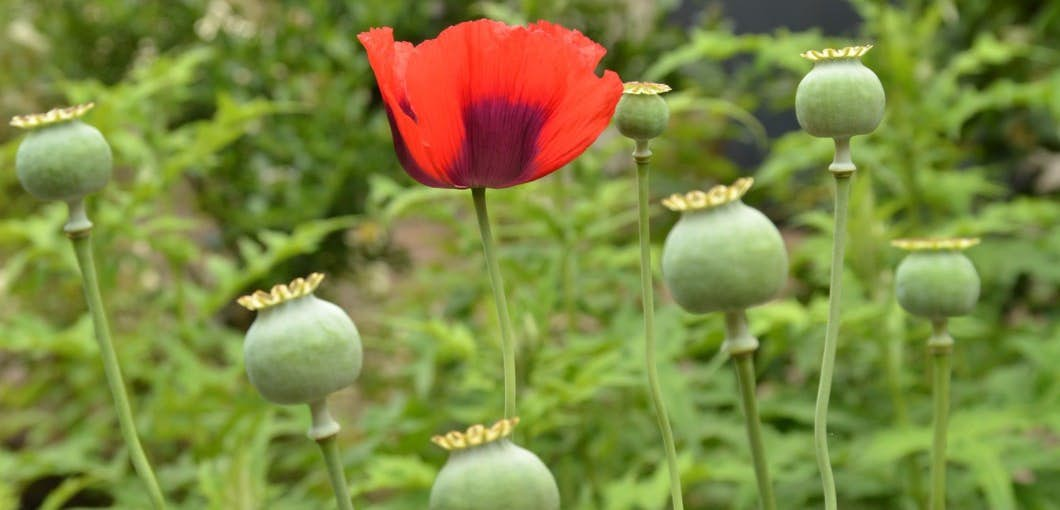
Since then, this poppy-based compound has soared in my estimation. I easily rank it among the most promising natural treatments for cancer currently available. Read on to find out why.
Continued below...
A Message from Lee Euler This “Forbidden” Food It’s being called a “silent epidemic”… A brain health crisis already growing faster than Alzheimer’s disease or dementia…and affecting the memory and cognitive ability of Americans as young as 40. Over the next decade, the U.S. government will spend more than $3 billion to study this threat. But you know what? They don’t need to spend the $3 billion because the major cause of memory loss has already been identified. Yet almost no one knows about it. Millions of people are losing their memories and seeing their brain health go downhill because nine out of ten of us don’t consume enough of vital nutrients we need for healthy brains. And when it comes to one of the most important nutrients of all… …we don’t get enough because doctors tell us NOT to eat the foods that happen to be richest in this “missing ingredient for good brain health”!! That’s right, the very food you need most for memory and cognitive health is a forbidden food! It’s a national scandal… but it’s also an opportunity for you to save your brain and improve your memory like you wouldn’t believe… Click here and I’ll tell you the full story… |
The “good kid” from the poppy family
First, a quick recap of the fascinating noscapine story. Noscapine itself is a naturally-occurring compound that originates from poppy seeds. It’s used as a cough suppressant in several over-the-counter medications.
Chemists first isolated noscapine in the early 19th century at the same time they were identifying other poppy derivatives – morphine, codeine and heroin. During that era, the medical community was beginning to explore the medicinal properties of opium poppies and other plants from the poppy family.
What they found was that noscapine differs drastically from the other compounds in the poppy family, and in two ways: One, it has no effect on pain and instead functions as a valuable cough suppressant. And two, it didn’t appear to be addictive (that’s the reason it’s not a controlled substance today).
Noscapine can be taken by mouth, is well-tolerated by humans, and shows no traces of toxicity. In other words, this powerful, all-natural substance has virtually no side effects! I say “virtually” because of its origination from the opium-producing poppy plant. Some believe it has the potential to be addictive. At this point, it seems to be a matter of opinion. And there is the fact that, taken in excessively large quantities, noscapine could make you feel a bit intoxicated.
Despite coming from the same family tree as heroin, harmless little noscapine is a key ingredient in cold and flu medications. Other current uses for noscapine as a medicine include immediate administration following a stroke – all thanks to recent research that shows noscapine helps increase blood flow to the brain, resulting in less long-term physical damage post stroke.
Cough-suppressant turned cancer-suppressant
Here’s what we know about noscapine as a cancer remedy. In 2003, a study out of Iran showed noscapine could slow cancer cell division (meaning it slows cancer growth and keeps the cancer from spreading).
Part of this has to do with its ability to inhibit mitosis. Noscapine thwarts the spindle formation required to pull chromosomes to the opposite sides of a cell as it prepares to divide into two cells. Hence, the parent cell’s genetic heritage is not passed on, and no cell division occurs.
Noscapine also keeps new blood vessels from growing near tumors, effectively cutting off their food source. A tumor’s formation of its own blood cell network is called angiogenesis. Stopping the process is a major goal of cancer treatment. In addition, noscapine is believed to make certain cancerous cells more vulnerable to chemo drugs.
Along with that, noscapine is known to inhibit bradikinin, a powerful cancer growth factor. This is huge, particularly since anything that effectively inhibits bradikinin tends to be more efficient than chemotherapy at halting cancer growth.
The promising future of noscapine as a cancer treatment
The future for noscapine-based cancer treatments is sizzling. Here’s just some of what’s happened since I last wrote to you about it:
|
One thing is clear… the big research outlets and pharmaceutical developers definitely have their eye on this one.
For now, you can still get it over the counter in most countries, including the U.S. and Canada. In my estimation, it’s one of the natural treatments most worth watching.

Kindest regards,

Lee Euler, Publisher
References


